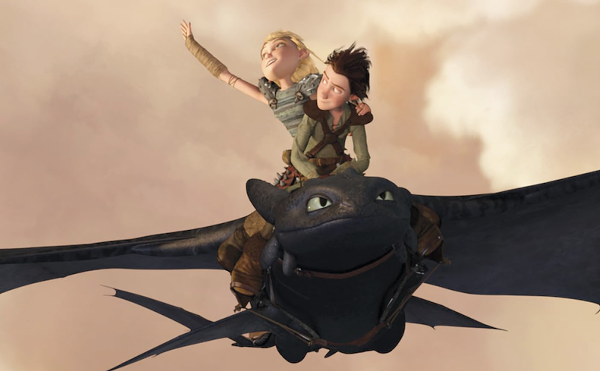Surprise! Life lessons abound in Akeelah’s story
If Horatio Alger were still alive, he would be writing screenplays about underprivileged children who by dint of pluck and luck manage to excel. Though Alger died in 1899, the American Dream lives on, at least in all the screenplays still being written about resolute youngsters who take advantage of opportunity to triumph over rivals. In Stand and Deliver, mastery of calculus enables Latino students to transcend the dead-end life of their L.A. barrio. In Friday Night Lights, victory in football is a ticket out of bleak West Texas. In Take the Lead, competitive ballroom dance teaches discipline and self-confidence to inner-city New York youths.
Asked what she intends to be when she grows up, 11-year-old Akeelah Anderson has no answer. Her situation does not encourage ambition. Akeelah’s father was shot dead when she was 6, and her mother (Bassett) is too exhausted from a menial job to give her children the attention they deserve. Her sister is rearing a child without its father, and a brother runs with a neighborhood gang. Akeelah herself has skipped class so many times she is required to attend summer session. Yet the principal of Crenshaw Middle School recognizes in this seventh-grader an extraordinary verbal talent, and he pressures her into competing in the school’s spelling bee. After she advances to the district contest, Joshua Larabee (Fishburne), whose private grief has led him to give up teaching at UCLA, agrees to coach Akeelah in the intricacies of spelling and, with inspiration from Frederick Douglass, W. E. B. Du Bois, and Nelson Mandela, the meaning of black pride.
Akeelah’s ghetto culture deflates expectations, and she is reluctant to set herself apart from her African-American community. But, gradually and predictably, she rises to the challenge, advancing from the district to the regional and finally to the national spelling bee, in Washington, D.C. Spelling is Akeelah’s vehicle for upward mobility, bringing her into contact with affluent contestants whose schools, unlike meager Crenshaw, offer classes in Latin, essential to understanding how words are formed in English. She is befriended and assisted by a Latino boy named Javier, and she finds a formidable adversary in Dylan Chiu, a snooty master speller whose martinet father refuses to allow him to settle for anything less than the national championship. Dylan comes perilously close to promulgating the stereotype of the overachieving Asian-American technocrat. Akeelah is the Jackie Robinson of orthography, making it in an America open to the accomplishments of all its diverse people.
Rocky for the lettered, Akeelah and the Bee spells out where it’s going long before it gets there. A knack for knowing how words are written proves the catalyst for restoring Akeelah’s broken family and Larabee’s vanished faith in himself. Taking control of the language’s rich lexicon, Akeelah learns, is more than just a matter of rote learning; it is an education in ethics, history, and enterprise. Few adult viewers will be surprised by this story of schoolgirl heroism or by competition words such as “pulchritude” and “prestidigitation” that buzz throughout the bees. Yet young Keke Palmer provides a winning performance as Akeelah. For anyone who finds ESPN’s coverage of the Scripps National Spelling Bee more thrilling than its football broadcasts, this endearing, hokey film — like Spellbound and Bee Season — hovers just below the bee’s knees.
















